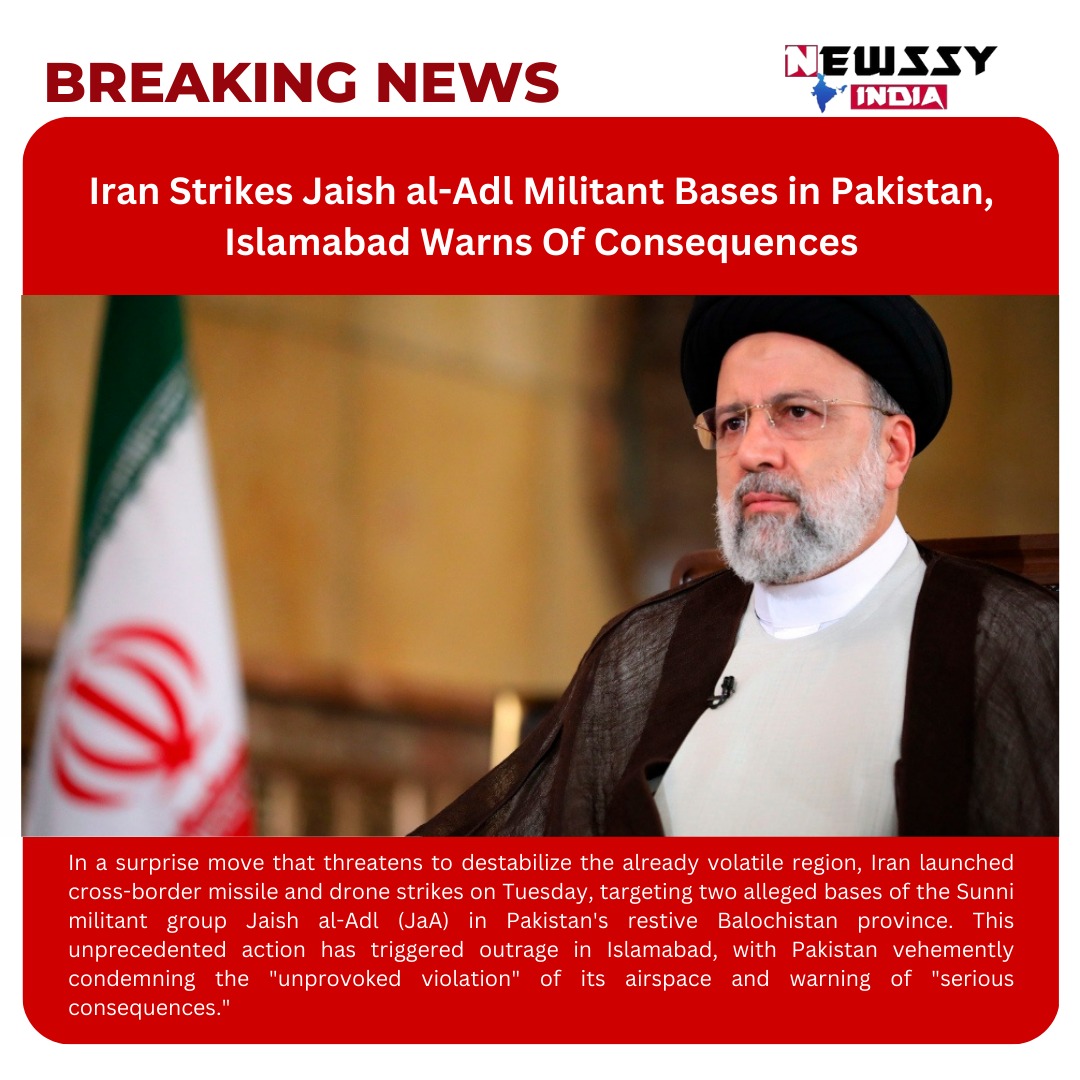In a surprise move that threatens to destabilize the already volatile region, Iran launched cross-border missile and drone strikes on Tuesday, targeting two alleged bases of the Sunni militant group Jaish al-Adl (JaA) in Pakistan’s restive Balochistan province. This unprecedented action has triggered outrage in Islamabad, with Pakistan vehemently condemning the “unprovoked violation” of its airspace and warning of “serious consequences.”
Tensions Escalate Across the Iran-Pakistan Border:
JaA, designated a terrorist organization by both Pakistan and the United States, has carried out attacks on Iranian security forces near the border in the past. Tehran claims the recent strikes were a preemptive measure to neutralize further threats from the group.
However, Pakistan rejects this justification, asserting that the attack resulted in the deaths of two children and injuries to three others, raising concerns about civilian casualties and Iranian disregard for Pakistani sovereignty.
This incident comes on the heels of rising tensions in the Middle East, following Israel’s airstrikes in Gaza and Iran’s missile attacks on targets in Iraq and Syria. The timing of the attack on JaA camps in Pakistan further fuels anxieties about regional escalation and instability.
Uncertain Trajectory of Escalation:
Pakistan’s military has been placed on high alert, but an immediate retaliatory strike against Iran is deemed unlikely. Instead, diplomatic channels are expected to be utilized to address the incident and seek assurances from Tehran.
The Pakistani government will face internal pressure to deliver a strong response, balancing the need to uphold its territorial integrity with the risk of further provoking an already belligerent Iran.
Regional powers like China and Saudi Arabia could play a vital role in de-escalating the situation and urging both sides to engage in dialogue.
Potential Long-Term Implications:
This incident risks jeopardizing the already fragile diplomatic ties between Iran and Pakistan. Further deterioration could hamper bilateral cooperation on economic and security issues, impacting regional stability.
The attack could embolden other militant groups within Pakistan, potentially leading to increased attacks on Iranian targets and security forces.
The incident raises concerns about the potential for wider regional conflict, particularly if miscalculations or misinterpretations lead to further military action.
Beyond the Headlines: Human Cost and Political Complexities:
The human cost of these cross-border actions cannot be ignored. The tragic deaths of Pakistani civilians, including children, highlight the human tragedy of regional conflicts.
Addressing the underlying socio-economic and political grievances in Balochistan, including long-standing discontent with the Pakistani government, is crucial to preventing the region from becoming a breeding ground for militancy.
Understanding the historical complexities and political dynamics within both Iran and Pakistan is essential for analyzing the motivations behind the attack and its potential consequences.
Unfolding Crisis Demands Measured Diplomacy:
The Iranian strike on JaA camps in Pakistan has opened a new chapter of uncertainty in an already tumultuous region. While swift diplomatic efforts are necessary to prevent further escalation, addressing the root causes of instability and prioritizing the protection of civilians remain paramount. The coming days will be crucial in determining the trajectory of this crisis and its long-term impact on regional security.








